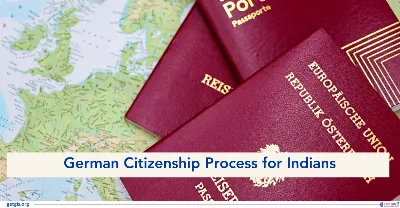Culinary Courses In Canada 2025: Eligibility, Universities & Admission Process for Indian Students
Updated On
-
Copy link
Explore top culinary courses in Canada - from top culinary schools in Canada, requirements, scholarships to jobs after graduation in this comprehensive guide.
Limited-time offer : Access a free 10-Day IELTS study plan curated for you

Table of Contents
- Culinary Courses in Canada: What is a Culinary Management Course?
- Top Universities for Culinary Courses in Canada
- Why Study Culinary Management Courses in Canada?
- Eligibility Requirements to Apply to Culinary Schools in Canada
- Admission Process to Culinary Courses in Canada
- Cost of Studying Culinary Courses in Canada
- Top Scholarships for Culinary Courses in Canada for International Students
- Job After Culinary Courses in Canada for International Students
- Fulfill Your Dream in Culinary Management with Culinary Courses in Canada
Culinary courses in Canada offers a remarkable environment for culinary education, with 20+ universities providing Bachelor’s degrees in Culinary arts. The hospitality and tourism sector has witnessed a 20% increase in enrollments over the past 5 years, highlighting the growing appeal.
The Canadian culinary industry employs over 1.2 million people and generates over $50 billion in revenue annually with job prospects varying from moderate to high among the Canadian regions. Join us as we explore the intricate details of culinary courses in Canada for international students covering everything from top universities, costs, job opportunities, requirements to admission process and more.
Culinary Courses in Canada: What is a Culinary Management Course?
Culinary management, a subset of hospitality, involves overseeing kitchen operations and blending culinary artistry with business management principles. Courses in this field provide essential skills like menu creation, food safety compliance, cost efficiency, and team supervision for aspiring chefs and kitchen supervisors.
Top Universities for Culinary Courses in Canada
Before we step into the realm of uncovering the eligibility requirements and the application process it is only fair to note the best culinary schools in Canada and the course they offer.
|
University |
Course Offered |
Annual Tuition Fee (CAD) |
|
University of Toronto |
BA in Culinary Management |
20,000 |
|
University of British Columbia |
BSc in Culinary Arts and Food Service Management |
22,000 |
|
Ryerson University |
Postgraduate Diploma in Culinary Management |
25,000 |
|
McGill University |
MBA in Culinary Management |
30,000 |
|
University of Alberta |
MA in Culinary Management |
20,000 |
|
Concordia University |
Executive Program in Culinary Management |
27,000 |
|
Centennial College |
Professional Diploma in Culinary Arts and Kitchen Management |
16,000 |
|
Brock University |
BBA in Culinary Entrepreneurship |
20,000 |
|
Carleton University |
BA in Global Culinary Management |
21,000 |
|
Humber College |
Advanced Diploma in Culinary and Hospitality Management |
18,000 |
|
Dalhousie University |
Postgraduate Certificate in Culinary Techniques and Management |
23,000 |
|
York University |
Graduate Certificate in International Culinary Arts Management |
24,000 |
|
Sheridan College |
Advanced Certificate in Culinary Management and Operations |
14,000 |
|
Vancouver Culinary Institute |
Diploma in Culinary Management |
15,000 |
|
George Brown College |
Certificate in Culinary Skills and Operations |
10,000 |
|
University of Calgary |
Associate Degree in Culinary Management |
19,000 |
|
Dalhousie University |
Postgraduate Certificate in Culinary Techniques and Management |
23,000 |
|
Ottawa Culinary School |
Diploma in Gastronomy and Culinary Management |
17,000 |
|
University of Waterloo |
MSc in Culinary Innovation and Food Product Development |
26,000 |
|
Simon Fraser University |
Bachelor of Professional Studies in Culinary Management |
21,000 |
Also Read: Top Public Universities in Canada; Location, Fees and More
Why Study Culinary Management Courses in Canada?
Enrolling in culinary courses in Canada presents several benefits. With a promising job outlook driven by a staggering 97,000 eateries, the Canadian culinary landscape offers a dynamic tapestry of cuisines shaped by diverse cultural influences.
Here are key advantages you ought not to miss
- Globally Recognized Education - Canada's culinary programs adhere to high standards, ensuring that your qualification is internationally recognized.
- Culinary Diversity - Explore a vast culinary landscape, from indigenous delicacies to French-inspired creations and multicultural fusions.
- Culinary Tourism Prospects - Grab exceptional opportunities in Canada's thriving culinary tourism industry as a culinary graduate.
- Innovative Techniques - Post-graduate programs emphasize cutting-edge cooking methods like molecular gastronomy, sous vide, and sustainable practices for industry readiness.
- Networking Advantage - Canadian culinary schools foster strong industry connections, providing valuable opportunities for internships and job placements.
Eligibility Requirements to Apply to Culinary Schools in Canada
Embarking on a career in culinary management in Canada holds immense fulfillment for aspiring chefs and restaurant supervisors. The essential qualifications, and prerequisites for international students interested in enrolling in culinary management courses in Canada.
- Educational Qualifications: A high school diploma or equivalent is required, with a background in hospitality or culinary arts being advantageous.
- Language Proficiency: Proficiency in English or French is essential, typically validated with a minimum score of 6.0 on the IELTS or an equivalent score on other recognized tests for those whose first language is not English or French.
- Visa and Study Authorization: International students must obtain a Canadian study permit and, if necessary, a student visa.
- Financial Proof: Demonstrating adequate funds for both tuition and living expenses in Canada is crucial.
- Health and Insurance: Maintaining good health and having appropriate health insurance are mandatory.
Also Read: Canada Student Visa Requirements & Fees 2025
Documents Required for Admission to Culinary Arts Courses in Canada
Now that you are familiar with the eligibility requirements moving forward next in the row is to list the documents required to gain admission in culinary courses in Canada for international students
- Passport
- Academic Transcripts
- Language Proficiency Scores
- Financial Documentation
- Letter of Recommendation LOR for Canada
- Statement of Purpose
- Health and Medical Documents
- Optional Portfolio
Also Read: 9 Financial Documents Required to Study Abroad in 2025
Admission Process to Culinary Courses in Canada
Admission into cooking schools in Canada follows a structured process to ensure that students are well-suited for the program and can derive maximum benefit from the country's esteemed culinary education.
Alt-Text: Admission Process to Culinary Courses in Canada
Step 1: Check Eligibility: Confirm that you meet the eligibility criteria for your chosen program.
Step 2: Complete the Application: Fill out the application form provided by your selected culinary school, often available through online portals for global accessibility.
Step 3: Submit Documents: Submit academic transcripts, letters of recommendation, and other pertinent materials required for the application.
Step 4: Pay Fees: Fulfill any applicable application costs.
Step 5: Interview (if necessary): Prepare for an interview where you'll discuss your background and career aspirations.
Step 6: Portfolio Submission (if necessary): Showcase practical abilities if required for specific programs.
Step 7: Admission Decision: Await and review the official admission decision.
Step 8: Acceptance and Enrollment: Accept the offer, meet any required deposits, and proceed with enrolling in the culinary management program.
Cost of Studying Culinary Courses in Canada
The cost of studying culinary management courses in Canada varies based on factors such as the type of course, degree level, and the institution. Henceforth we have mentioned below an approximate breakdown of the tuition fees for different culinary course levels
|
Degree Level |
Tuition Fees Range (CAD) |
|
Diploma in Culinary Management |
26,000 - 34,000 |
|
Bachelor’s Degree |
14,000 - 72,000 |
|
Master’s Degree |
21,000 |
|
Foundation for Undergraduate |
27,000 |
Explore the Cost of Studying in Canada for Indian Students in 2025
Top Scholarships for Culinary Courses in Canada for International Students
Like every other course Canada also offers promising scholarships to international students to support their studies and stay in Canada. The top scholarships for culinary courses in Canada include:
|
Name |
Offered By |
Eligibility |
Grant Amount |
|
Humber International Entrance Scholarships |
Humber College |
International students enrolling in diploma/degree programs including culinary arts Based on academic merit |
Up to CAD 4,000 |
|
George Brown College Entrance Scholarships |
George Brown College |
International students in culinary and hospitality programs Offered each semester |
CAD 1,000–2,000 |
|
Manitoba Institute of Trades and Technology (MITT) Scholarships |
MITT |
Domestic and international students in trade and culinary programs Based on financial need and merit |
Varies |
|
Ontario Trillium Scholarship (OTS) |
Ontario Government |
Graduate-level students with high academic achievement For Master's and PhD level, may apply to advanced culinary research programs |
CAD 40,000/year |
|
Nova Scotia International Student Bursary |
Nova Scotia Government |
International students studying in the province Applicable for programs like culinary management |
CAD 5,000 |
|
The Culinary Institute of Canada Scholarships |
Holland College |
Students enrolled in culinary programs Based on academic and community involvement |
Up to CAD 3,000 |
|
Education Future International Scholarship |
Education Future Foundation (India) |
Indian students studying abroad in fields including culinary Based on academic excellence and financial need |
CAD 1,000 - 10,000 |
Also Read: Top Scholarships for Indian Students in Canada in 2025
Job After Culinary Courses in Canada for International Students
Now that you have been well-equipped with the courses and the relevant details, last but the most important factor or point is the ROI you could gain. We have listed a few of the popular opted job prospects by culinary graduates in Canada.
|
Culinary Management Jobs |
Average Annual Salary (CAD) |
|
Executive Chef |
75,000 |
|
Restaurant Manager |
50,000 |
|
Food and Beverage Manager |
55,000 |
|
Sous Chef |
45,000 |
|
Pastry Chef |
40,000 |
|
Kitchen Manager |
47,000 |
|
Culinary Instructor |
60,000 |
|
Food Service Director |
70,000 |
|
Corporate Chef |
80,000 |
|
Menu Development Specialist |
55,000 |
|
Food Stylist |
47,000 |
|
Food Critic/Reviewer |
65,000 |
Also Read: Post Graduation Work Permit (PGWP Canada) for International Students in 2025
Fulfill Your Dream in Culinary Management with Culinary Courses in Canada
Studying culinary courses in Canada opens doors to world class education system in Canada, hands on training and exciting career opportunities. With universities offering cutting edge facilities, industry connections, students gain the skills needed to excel in Canada and beyond.
Canada’s multicultural environment and supportive education system make it an ideal destination for aspiring chefs and culinary professionals. Whether you aspire to become an executive chef, restaurant manager, or culinary instructor, GetGIS is the right assistance partner.
Our study abroad team ensures to navigate your admission process, visa application and scholarship opportunities smoothly, for your safe integration into Canada.
Also Read:
- Students Working Hours in Canada in 2025: Rules, Benefits, and Opportunities
- Study in Canada After 12th Grade in 2025: Courses, Eligibility, Visa Application Process, and More
- List of Documents Required for Canada Student Visa Process from India in 2025
- Is a 7.5 IELTS Score Good for Canada Immigration?
- Chef Salary in Canada in 2025: Scope, Average Salary, and Requirements
- Cheapest college in Canada for international students
Limited-time offer : Access a free 10-Day IELTS study plan curated for you

Frequently Asked Questions
Is culinary a good career in Canada?
Is Culinary Arts in demand in Canada?
What is the salary of a chef in Canada?
Which is the most famous baking school in Canada?
Is culinary school worth it in Canada?





